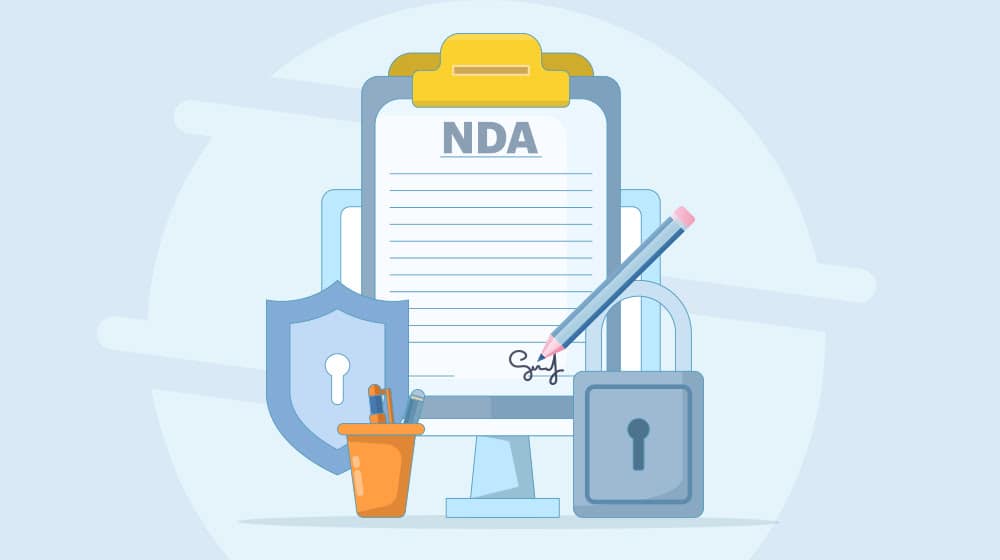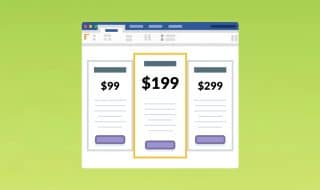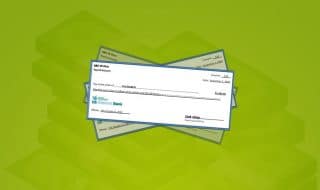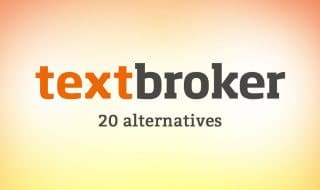Should Blog Writers Sign NDAs? The Pros and Cons

As a marketer, I think a lot about the ins and outs of blog writing from technical and creative perspectives. As a business owner, I have to think a lot about the legal side of things as well. While that's often centered around the contracts I have with clients, it can also involve contracts with freelancers like blog writers.
One of the big documents that comes up a lot is an NDA. In some areas of business, NDAs are standard practice; in others, they're nonsensical. Where do they fall with blogging? I'll go through pretty much everything you'll need to know about NDAs and give you my verdict as to whether or not you should use one at the end.
What is (and isn't) an NDA For?
First of all, let's talk about what an NDA is, what it's for, and what it isn't for. One thing I've noticed a lot over the years is some misunderstandings about what the NDA does and what it doesn't do.
A non-disclosure agreement is a legal contract between two entities. In the case of today's discussion, it would generally be between a business/blog/marketing company and a blog writer who operates as a freelancer. For this post, I'll generally use "freelancer" or "writer" for the writer side and "site owner" or "business" for the business side.
NDAs are a confidentiality agreement, an agreement of non-disclosure. They serve two general purposes:
- To identify information that should be protected and held in confidentiality and what isn't necessary to protect.
- Creating a legal obligation to protect confidential information identified in the first part.
They can be used to protect specific information, hide relationships, and protect ideas. For example, an NDA might protect an invention idea during the prototyping phase so it can't be (as easily) stolen and mass-produced ahead of the actual creator's patent application.

Some examples where NDAs are commonly used include:
- A business might have employees sign an NDA for their work to keep business data secure.
- A business might require an NDA with an investor, so the investor can't spread word of the business's product ahead of release.
- If two businesses merge, the tertiary people involved, like brokers, might need an NDA to protect business financial data.
There are also two kinds of NDA: unilateral and mutual. Unilateral NDAs would be where the business requires the writer to keep quiet about the business relationship, but the business could share the fact that the writer works for them if it wanted to. Mutual means that neither side can share the information without breaking the NDA.
NDAs have a defined scope, a set of obligations, a duration or lifespan (so it's not indefinite), exclusions, and even a list of potential penalties for breaching it.
There are, however, some tangible limitations on NDAs. They aren't open-ended, protects-everything contracts like some people think they are.
- NDAs are just words on paper; they hold no weight if you aren't willing to take decisive legal action if they're breached.
- There are reasons why an NDA can be invalid. An NDA can't protect you from illegal activity, for example.
- They have to specify what information is covered. Anything outside that set of definitions can't be protected without another NDA.
NDAs also can't enforce anything other than protecting information. Some people tend to view them more like non-competes, but that's another kind of contract entirely.
Why Some Blog Owners Want an NDA
If you're a blog owner and you're looking to hire a freelance writer to do some writing for your blog, should you consider an NDA?
Well, the question is, why would you want an NDA? There are generally a few specific reasons.
One is to hide the relationship. If you're building up a personal brand with your blog, and people learned that you were hiring a freelance writer to write for you, it could undermine your expertise. After all, how much of what's on your blog is your expertise versus that of your writer?
If you think that's not a big deal, well, for a lot of circles, it isn't. If you're writing for a restaurant, a culture site, a video game blog, a movie review site, or what have you, that expertise isn't a high bar to clear.
For other industries, though, it can be a bigger deal. A medical blog or financial site has high EEAT requirements, so if the "doctor" writing ends up being an unqualified freelancer, that can cut confidence a lot. Of course, a lot of sites in these niches now use a "fact checked by X" style attribution model to get around that.

Another reason is to protect business information given to the writer for their job. Again, this can be business-dependent. If you're hiring a writer to put together a big content drop for the release of a new product, you might have them sign an NDA about the details of the product if they haven't been announced yet. These kinds of embargos are common for things like new technology, for example.
It can also come up with white papers and other big projects. If a business pays thousands of dollars to run a deep case study, they don't want their writer to leak the info before their white paper is ready, right? Sometimes, it's not really meaningful, but it might be a matter of course.
In some cases, an NDA can also be protection for the business owner. For example, I've written for Forbes and some other big publications. These publications have strict rules against things like account sharing, selling mentions, and the like. If I were to use a freelancer to do my writing, there's the possibility I could get in trouble for it. Is it likely? Not really, unless I (or they) were abusing the position, which I would presumably be checking for before submitting my content, but that's a worry some business owners have.
It can also be relevant for white-labeled services. For example, a lot of content mills serve as middlemen between clients and writers and take great pains to anonymize them so the clients and writers can't find each other without the content mill in the middle. An NDA as part of the onboarding process helps protect the middleman's income and business model.
Do Blog Writers Request NDAs?
Most of the time? No, freelance writers aren't going to request an NDA.
The main reason for this is social proof and their own marketing. Freelance writers require clients to survive, and to get those clients, they need to be able to share their skills. Whether that's through a list of clients, examples of their work, testimonials, or whatever else, without it, the writer tends to be hindered in their pursuit of additional work.

The exception to this is other kinds of writing. For example, a fiction writer with a manuscript might want an NDA when pitching it to editors or beta readers. It's usually not necessary (an editor that would abuse a writer would very quickly no longer be an editor), but it can be peace of mind.
For marketing writers? Nah, I've pretty much never heard of a writer asking for an NDA outside of the rare newbie who has no idea what they're doing.
Should You Request an NDA?
There are pros and cons to NDAs as a business owner.
The benefits are in the protection of sensitive information. If your business deals in information that needs to be kept hushed up, temporarily or indefinitely, an NDA might not just be a good idea. In some cases, it might even be mandatory.
So, an NDA can help avoid leaking details and undercutting marketing, avoid leaking relationships and undermining authority, and disrupting things like patent applications.

On the other hand, there are some important drawbacks to NDAs.
- They're only as strong as your willingness to enforce them. NDAs aren't magical; if someone who signed one ends up breaching it, you still have to identify who it was, pursue legal action against them, and potentially go through the whole court process over it. That's easier if your writers are domestic, but if you're hiring writers from overseas, it might be nearly impossible.
- If the NDA is mutual, your business can be just as much at risk, but if your employees don't know what they shouldn't be sharing, the risk of a breach is much higher. It's an admittedly rare circumstance for something like blog writing, but it's still a potential risk.
- It turns off some writers. Like I said above, freelance writers rely on their portfolio of work and their clients to get more work. If you want an NDA, they might just decline to work with you.
And, realistically, in most cases, the NDA isn't really going to be valuable. Sure, if Doctor Whozit turns out to have been written by Writer Extraordinaire, maybe some people might lose faith in Whozit, but realistically? Barely anyone is going to care. Google won't really care unless it's extremely egregious. Readers barely even check the author's name anyway. As long as the information is good, the source matters a lot less.
In my view, an NDA is useful in a few rare circumstances, particularly when you're prepping a marketing push for something you're keeping under wraps. Even then, though, it's better to have project-specific NDAs for just the information, not general NDAs for the entire relationship.
How a Writer Might Negotiate an NDA
From the writer's perspective, an NDA can be stifling and unattractive. When they can't talk about what they're doing or share the work they've done, and especially if they can't even share the clients they've worked for, it makes it very hard for them to find more work moving forward.

So, it's not uncommon for a writer presented with an NDA to want to negotiate the specific terms. They might ask for things like:
- The ability to at least list you as a client they've worked for, even if they can't share specific work.
- The ability to share information when it's been genericized; saying "Worked for a Medtech in the Fortune 500" instead of your specific brand, for example.
- The ability to share information privately, such as information with other prospective clients, but not posting it to their website.
- Negotiating a byline instead of ghostwriting.
- Setting a firm expiration for the NDA that may be sooner than you otherwise would ask for.
- Asking for a testimonial they can use.
If you're dead set on having an NDA with your writers, being willing to make these kinds of concessions can go a long way toward making it more palatable to them.
Writers: Should You Sign an NDA?
As a final note to the freelance writers reading this: should you sign the NDA, if one is required?
Ultimately, the answer is up to you. If you're in need of the work and you are less in need of the credit, then signing it is fine. If the NDA is limited in scope and is primarily aimed at protecting confidential information rather than your business relationship, by all means, go ahead.

On the other hand, if you're just starting out and need the credit, or if you think the NDA is a bit too intrusive, long-lived, or overly generic, you can try negotiating. Sometimes, the client can waive it or alter it, and sometimes, they won't. Take it on a case-by-case basis.
Ultimately, site owners want good writers, and writers want good work. How an NDA plays into that will vary from instance to instance.










Comments